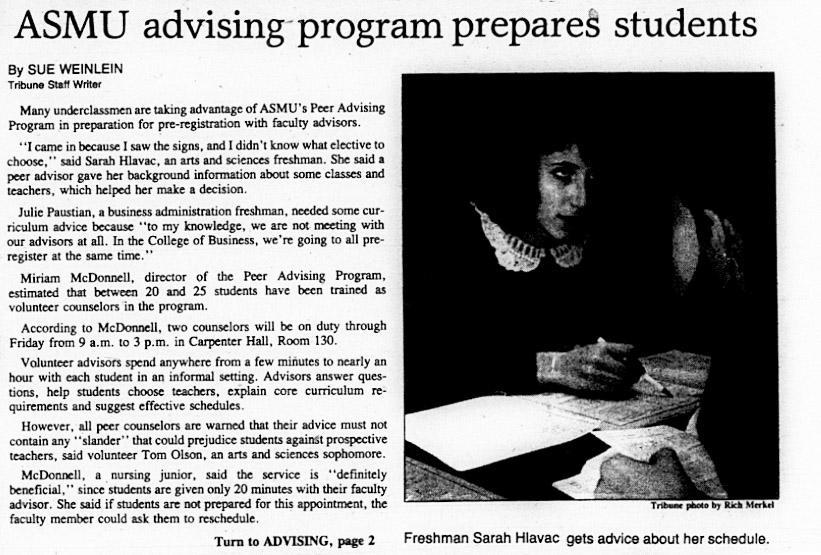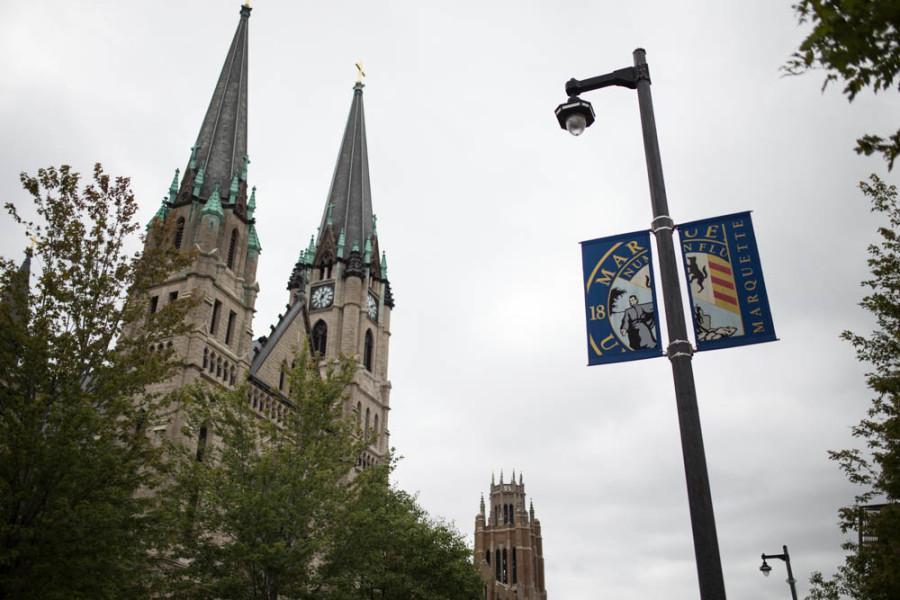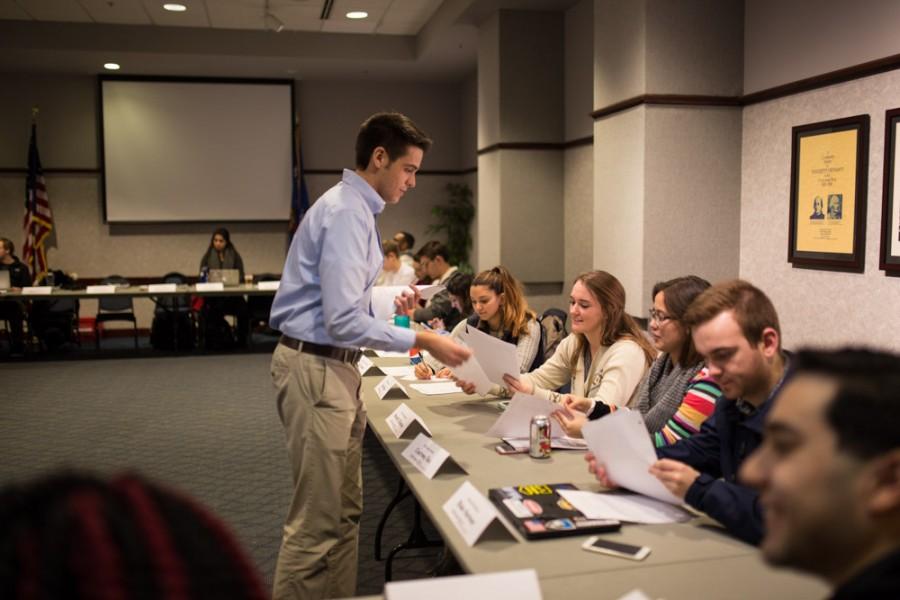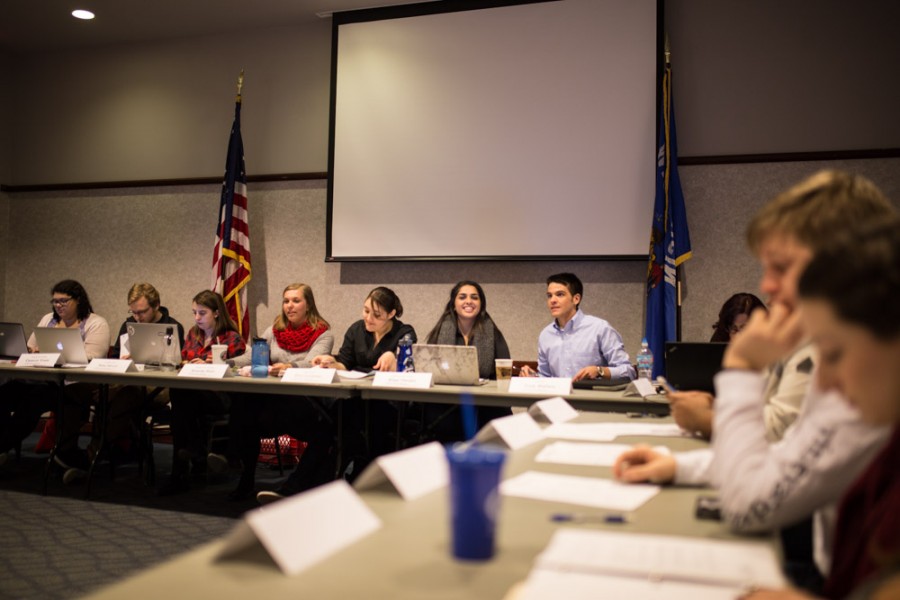This is the first in a series of stories celebrating the 100-year anniversary of The Marquette Tribune.
A Peer Advising Program to help students pick classes was offered at Marquette in 1987. Fast forward 28 years and Marquette Student Government members think the program is a good idea.
“I think it would be very helpful to students who have never experienced advisement meetings before,” said Amanda Stolz, MUSG legislative vice president and senior in the College of Education.
According to a Marquette Tribune article from Nov. 5, 1987, Associated Students of Marquette University (MUSG’s former name) set up the program. Around 20 to 25 students were trained as volunteer counselors for underclassmen who needed advice on what to expect in their faculty advising meetings.
The volunteers sat down with students in an informal setting and answered questions about choosing teachers, what classes to take, schedule suggestions and core curriculum requirements.
“Great place to network and have a general meeting about the advising process,” said Aliya Manjee, MUSG vice president and junior in the College of Arts & Sciences. “Upperclassmen could reflect on their past experiences with the (faculty advising) meetings and tell the underclassmen what to expect.”
In the article, Julia Paustian, a freshman in the College of Business at the time, said she needed the program because as far as she knew, students weren’t meeting with their faculty advisers at all.
Wallace said he would consider reviving the Peer Advising Program in the future.
“Any way that we could make the advisement process more efficient sounds likes a good idea to me,” Wallace said.
Miriam McDonnell, a junior in the College of Nursing and director of the Peer Advising Program at the time, said students were allowed 20 minutes with their adviser to talk about classes and other issues. She said if students came unprepared, the adviser could ask them to reschedule.
The Peer Advising Program allowed students to prepare for advising meetings with other students to avoid that situation.
“It would definitely help with the advising process,” said Zack Wallace, MUSG president and senior in the College of Arts & Sciences. “It’s nice seeing them look for students being the answer in the advisement process.”
The article also said confused freshmen used the program when they were not sure how to prepare for a faculty advising meeting.
Sara Hlavac, a freshman in the College of Arts & Sciences at the time, said the program provided her with background information about classes and teachers, which helped her decide when it came time to pick her schedule.





